The risks of not having an international programme
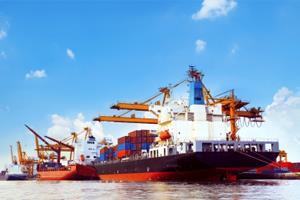
The scale of the marine sector is truly huge. Ninety percent the world’s trade is carried by shipping and almost everything that is bought and sold passes through ports in 12m containers.
In 2011, 360 US commercial ports took in international goods worth $1.73trn (€1,63trn), which amounts to 80 times the total value of all US trade in 1960. The UK shipping industry employs almost 635,000 people.
However, the sea will always remain a risky place. Globalisation is taking businesses to new markets presenting new risks, and larger and larger vessels are creating more complex exposures, making the right insurance choices ever more essential for large and small firms.
All risk managers need to consider the reach of their insurer, depending on where they ship from and to and on where they manufacture. “Your insurer needs to have the breadth to cover you,” says Daniel Desjardins, senior director, global risk management and insurance at planes and trains manufacturer Bombardier.
“People always focus on the ability to pay claims – and this is important [since] ultimately it is why [businesses] buy a policy. However, with the current marine complexity, one of the elements Bombardier is looking for is a company that can help it with [global] risk management.”
Key to achieving this is having someone in the insurer’s organisation who can help evaluate risk globally and guide businesses through the process to ensure they understand their exposure.
“I want a global policy that I understand, that my insurers understand,” says Desjardins.
Daniel San Millan, risk manager at infrastructure and services operator Ferrovial, agrees.
He says: “The insurer has to be as genuinely global as Ferrovial. We don’t want to have discussions between countries or regions of a so-called ‘global’ insurer”.
“I want to negotiate with underwriters with authority in all Ferrovial portfolio countries… I hate to hear ‘sorry but you have to deal with the guy in Chicago for this specific risk’.”
Really international
The risks of not having a genuinely international programme with the right local expertise can be significant for multinationals and middle market companies alike. For example, if a subsidiary encounters a problem that disrupts a supply chain, this could mean dire consequences for a manufacturer.
Furthermore, as Carole Chupin, directeur Département Maritime & Transports at ACE France, explains: “There could [also] be problems with legal issues or non-payment of tax, or you could have a lack of coverage or be relying on an insurer that perhaps doesn’t have the funds to pay your claim”.
The advantage of an international programme (over a single global policy or patchwork of policies taken out with local insurers) is that it co-ordinates local cover within an efficient, standardised strategic framework.
Having a global insurance programme, incorporating local policies, enables risk managers to control their insurance conditions and be sure that the insurance cover in place for all countries is issued on the basis of conditions agreed and decided by them. This also helps control insurance costs.
The right partners
“Of course, it’s also necessary to choose partners – brokers and insurers – that are in a position to manage a global programme through their own network to obtain the best service and reporting,” says Jean-Yves Laville, technical director, transport at Aon France.
“A business can have the best insurance conditions, but this is useless without good partners to issue local policies [as part of a global insurance programme] when necessary and to explain [how to] respect local compliances and obligations.
“From my point of view, [as part of a global insurance programme] the quality of the information given by the local insurance company and the local broker is absolutely a critical point to be able to provide efficient information to the corporate risk manager on minimum premium level, taxes, the time limit for the issuance of the policy or settlement of the premium.”
He adds: “A global insurance programme also has to be ‘flexible’ to provide local solutions to local problems,” says Laville.
The correct global insurance programme also has to strictly respect the rules in all the countries covered by the policy.
“This is a day-to-day challenge that requires full co-operation between the client, the broker and the insurance company,” says Laville.
“For example, obtaining the settlement of a premium before the date of inception in Japan can be a challenge if you do not choose an insurer able to issue the policy and premium very quickly.”
Not at all cost
Getting all this in place means not always making cost the prime consideration and focusing instead on long-term partnerships. “[The price of cover] has to be reasonable for both parties, otherwise there is no incentive for the insurer to be flexible and it has to be able to build up some reserves to cover a loss when it occurs,” says Maya Zeller, corporate insurance-risk manager, Cofra Holding AG. “[However,] we have a great relationship with our insurer and it listens to us when we want to change something.”
INSURANCE: KEY POINTS
1. Get cover from a global provider with the right local presence or partners who know the detail
2. Find an insurer that can help with on-the-ground risk management advice
3. Cost is not everything: focus on a good relationship that will last
4. Work with your suppliers and partners to stress test your operations from top to bottom
5. Keep your broker and insurer informed about operations and expect the same level of detail in return
USING BIGGER SHIPS: KEY POINTS
1. Make sure you know how much of your cargo is at sea on any one vessel – and what a loss or delay could mean
2. Look to your risks loading and unloading large vessels
3. How does increased overland transport affect your exposures?
4. How do harbour side changes such as concentrating cargo on one site affect your risk?
5. Are your broker and insurer equipped to assist with complex claims like general average?
Downloads
Marine english a4
PDF, Size 0.36 mb





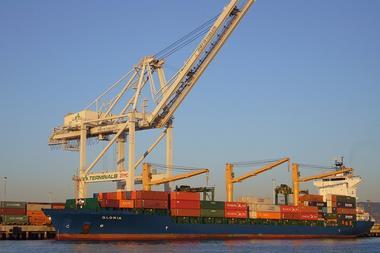
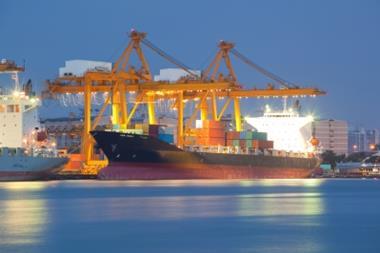
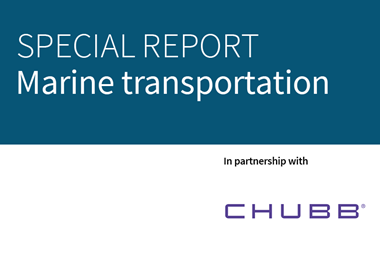
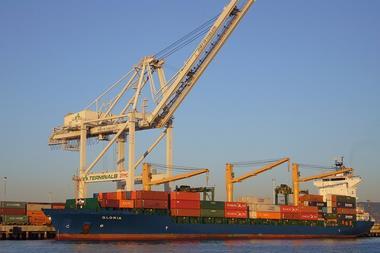
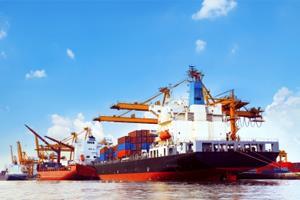










No comments yet